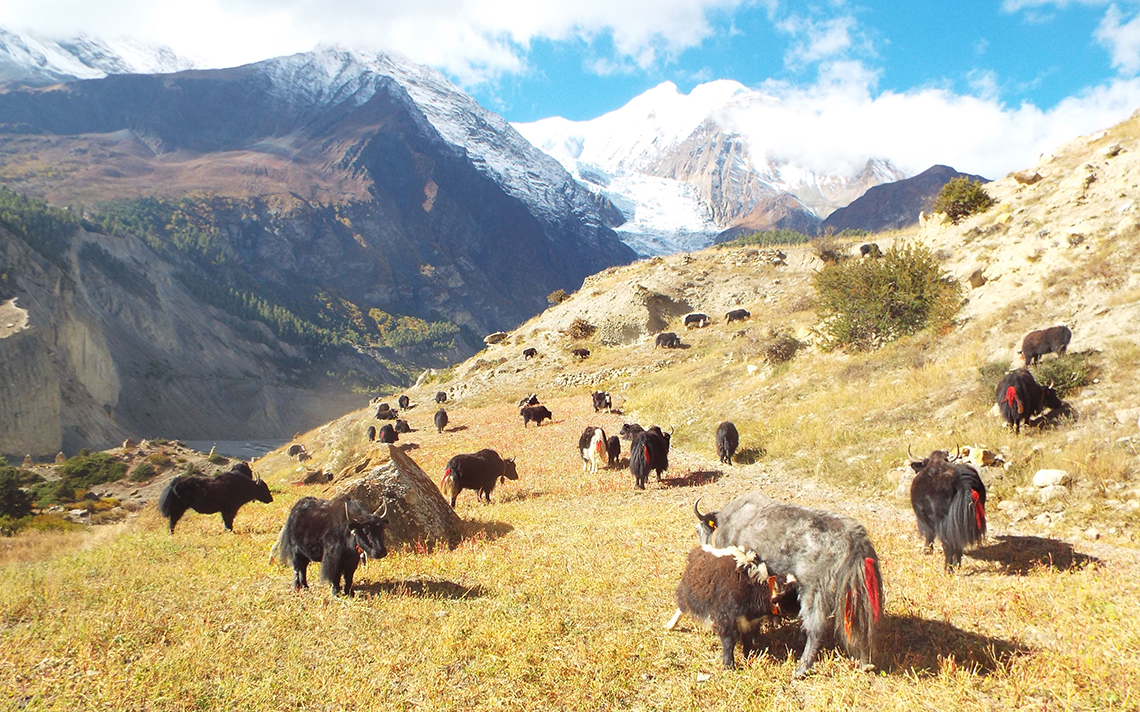
Advocating Debates in Policy Making for Yak Farmers' Interests and Enhancing Farmer Capacity thro
2024-08-23
Introduction
This progams aims to promote informed policy-making in the interests of Yak farmers by advocating for debates rights we fights for the rights of Yak herders, enhancing farmers' capacity through experience exchange programs, and organizing Yak farmers tours. By facilitating dialogue, knowledge-sharing, and hands-on learning experiences, this initiative seeks to empower Yak farmers, foster community engagement, and strengthen the resilience and sustainability of Yak herding practices.
Objectives:
- Advocating Debates in Policy Making: Encourage open dialogues, discussions, and debates among stakeholders, policymakers, and Yak farmers to ensure that policies are designed to address the specific needs, challenges, and opportunities faced by Yak herders.
- Enhancing Farmer Capacity: Provide training, workshops, and skill-building sessions to enhance the capacity of Yak farmers in areas such as sustainable farming practices, livestock management, business skills, and advocacy, empowering them to make informed decisions and effectively engage in policy discussions.
- Organizing Experience Exchange Programs and Tours: Facilitate exchange programs, study tours, and knowledge-sharing initiatives that enable Yak farmers to learn from each other's experiences, explore best practices, and gain new insights into innovative approaches to Yak herding and livelihood enhancement.
Components of the Proposal:
- Policy Advocacy Forums: Organize policy advocacy forums, roundtable discussions, and public debates that bring together policymakers, experts, researchers, and Yak farmers to discuss key issues, share perspectives, and co-create solutions for sustainable Yak farming development.
- Capacity Building Workshops: Conduct training workshops, seminars, and mentorship programs that focus on building farmers' skills, knowledge, and capacities in areas such as sustainable land management, climate resilience, market access, and advocacy for policy change.
- Experience Exchange Programs: Facilitate cross-learning opportunities, peer-to-peer exchanges, and field visits that allow Yak farmers to interact, share their experiences, learn from successful practices, and gain insights into innovative approaches to Yak herding, value addition, and community development.
Expected Outcomes:
- Informed Policy Decisions: Advocating for debates in policy making will ensure that decisions are informed by the needs, priorities, and perspectives of Yak farmers, leading to more responsive, inclusive, and effective policies that support sustainable Yak herding practices.
- Empowered Farmers: Enhancing farmer capacity through training and experience exchange programs will empower Yak farmers to improve their livelihoods, adopt sustainable practices, and actively engage in decision-making processes that affect their well-being and future.
- Knowledge Sharing: Organizing tours and exchange programs will promote knowledge sharing, collaboration, and networking among Yak farmers, fostering a sense of community, solidarity, and collective action for the advancement of Yak herding communities.
Conclusion
By advocating debates in policy making, enhancing farmer capacity through training, and organizing experience exchange programs and tours, we can foster a culture of dialogue, learning, and collaboration that empowers Yak farmers, strengthens community resilience, and promotes sustainable development in the Yak herding sector. This proposal underscores the importance of inclusive decision-making processes, knowledge sharing, and capacity building initiatives in advancing the interests, well-being, and livelihoods of Yak farmers, while also promoting environmental conservation, cultural preservation, and social equity in the Himalayan region. Through these collective efforts, we can create a more sustainable, resilient, and prosperous future for Yak herding communities and ensure the continued vitality of Yak farming traditions for generations to come.